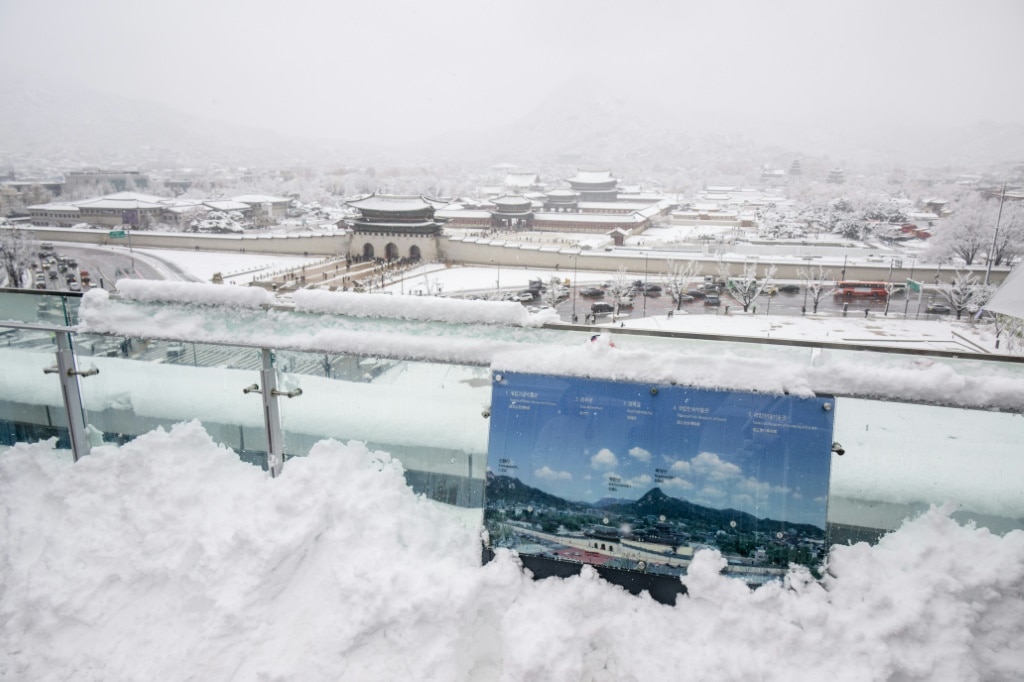South Korea’s opposition moves to impeach President Yoon Suk Yeol after martial law declaration
South Korea’s opposition party has moved to impeach Yoon Suk Yeol hours after the President mobilised the military and declared martial law.
South Korea’s opposition has moved to impeach President Yoon Suk Yeol after his declaration of martial law brought thousands of protesters to the streets.
Yoon’s attempt to suspend civilian rule for the first time in over 40 years was overturned by lawmakers in a chaotic 12-hour period that rattled the nation of 50 million to its core.
Yoon, a conservative politician and former star public prosecutor who was elected president in 2022, is now facing an uncertain future with analysts predicting he will be forced from the country’s top seat.
South Korea’s opposition parties -- whose lawmakers jumped fences and tussled with security forces to vote down the law -- on Wednesday filed a motion to impeach Yoon.
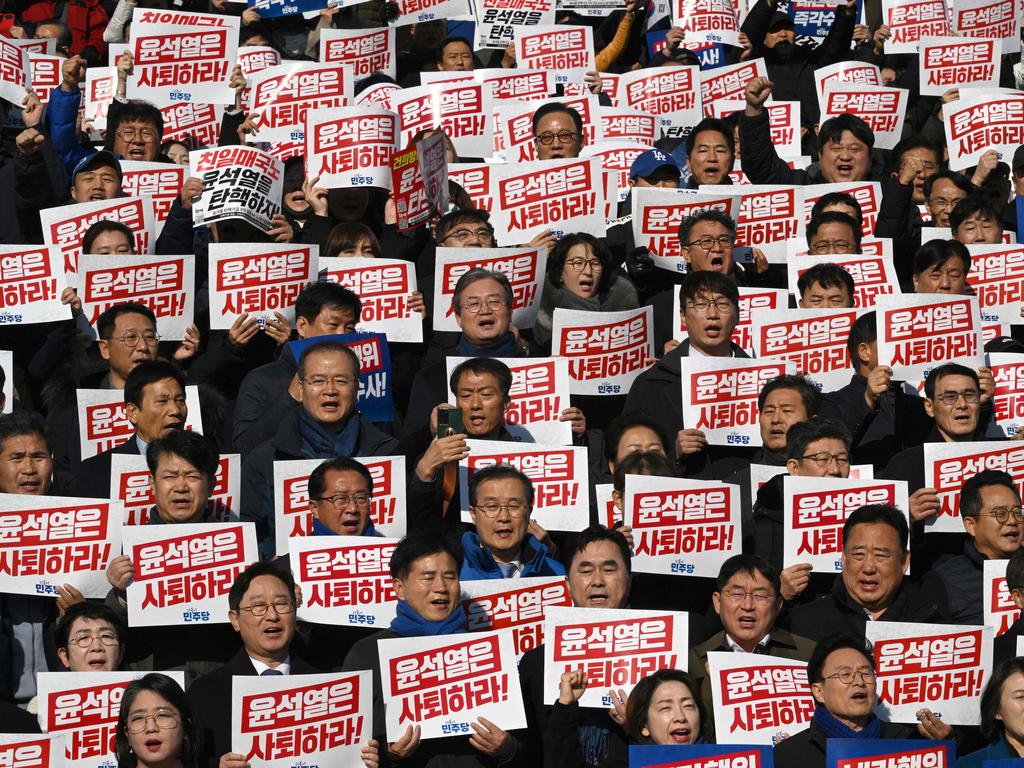
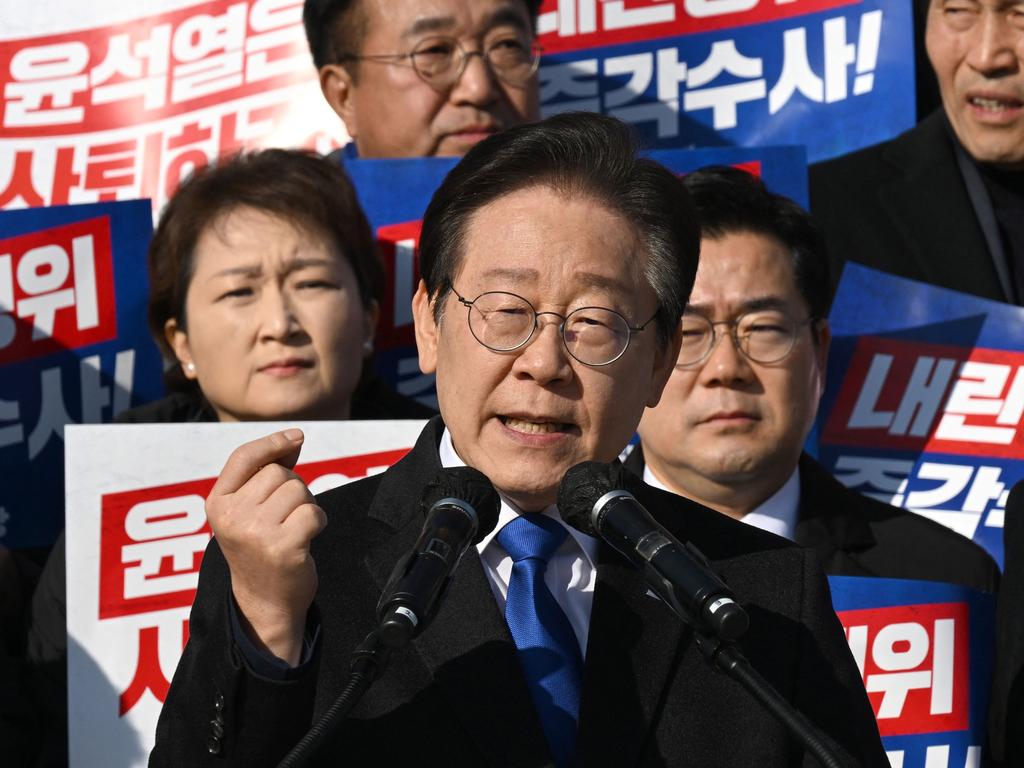
“We’ve submitted an impeachment motion prepared urgently,” said Kim Yong-min from the opposition Democratic Party (DP).
They were yet to decide when to put it to a vote, but it could come as soon as Friday.
The opposition holds a large majority in the 300-member parliament and needs only a handful of defections from the president’s party to secure the two-thirds majority needed to pass the motion.
Earlier the DP said it would file charges of “insurrection,” against Yoon, his defence and interior ministers and “key military and police figures involved, such as the martial law commander and the police chief”, the DP said in a statement.
The nation’s largest umbrella labour union called an “indefinite general strike” until Yoon resigns.
Even the leader of Yoon’s own ruling party described the attempt as “tragic” while calling for those involved to be held accountable.
Nation could descend into chaos
South Korea could descend into further chaos with the country’s largest union warning members will go on an indefinite strike until the president resigns after his surprise attempt to impose martial law.
President Yoon Suk Yeol shocked the nation when he declared martial law in a late-night emergency TV address on Tuesday, announcing it was “critical for defending the country’s constitutional order”.
Yoon accused the country’s opposition of controlling the parliament, sympathising with North Korea and paralysing the government with anti-state activities.
Parliamentary activity was banned and medical staff were ordered to return to work in 48 hours in a move which triggering widespread protests outside the nation’s parliament.
Hours later, Yoon sensationally backflipped on the decision after South Korea’s politicians voted unanimously to block the measure.
“Just a moment ago, there was a demand from the National Assembly to lift the state of emergency, and we have withdrawn the military that was deployed for martial law operations,” President Yoon Suk Yeol said in a televised address about 4.30am on Wednesday (local time).
“We will accept the National Assembly’s request and lift the martial law through the Cabinet meeting.”
Now, South Korea’s largest union – which boasts over 1 million members – has called for an indefinite general strike until Yoon steps down, stating he has “declared the end of (his) own power”.
“We will fight alongside the people, leading the way for the immediate resignation of Yoon Suk Yeol,” the Korean Confederation of Trade Unions (KCTU) said, according to South Korea’s Yonhap news agency.
“KCTU members will stop working according to the strike guidelines, call for the resignation of Yoon Suk Yeol for treason, and conduct nationwide emergency actions for social reform and the realisation of popular sovereignty.”
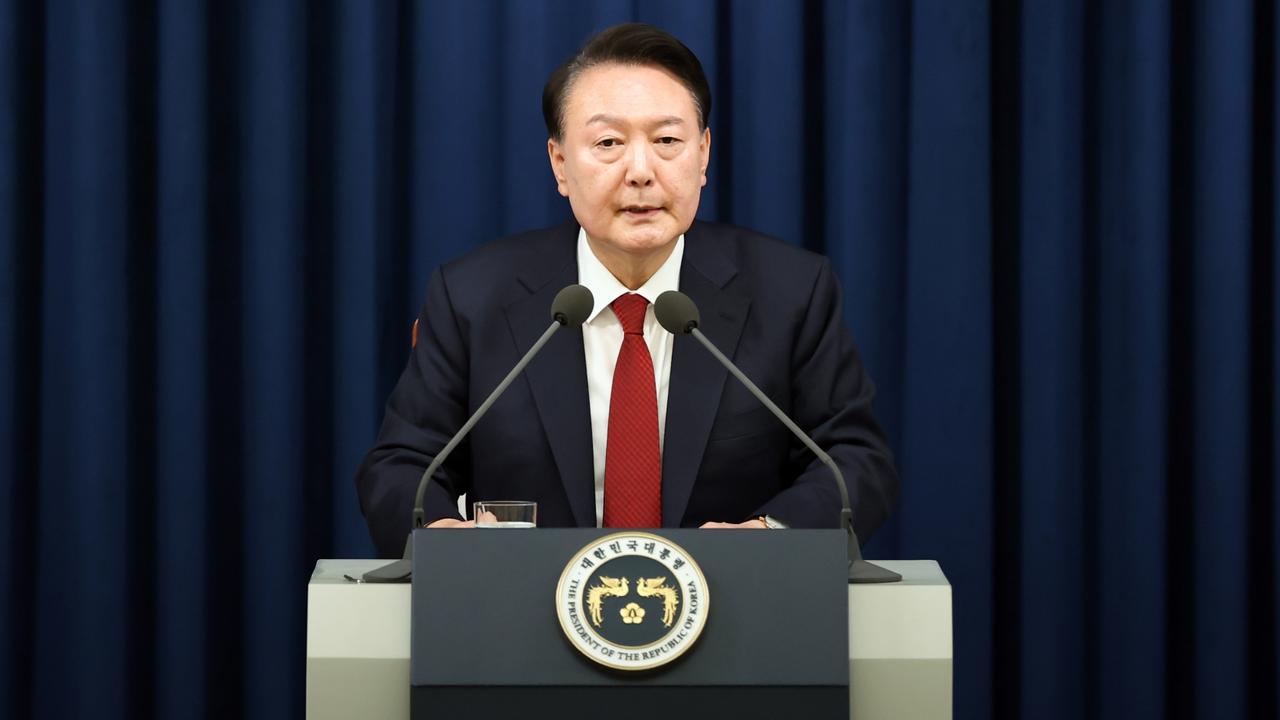
It comes as South Korea’s opposition Democratic Party warned it will begin impeachment proceedings if Yoon does not step down.
“We will not sit idly by and watch President Yoon’s crime of destroying the Constitution and trampling on democracy,” it said.
“President Yoon should immediately resign voluntarily.”
The floor leader of the party, Park Chan-dae, earlier said Yoon must “step down immediately”, stating he “cannot avoid the charge of treason,” in comments reported by CNN.
The head of a minor opposition party, Cho Kuk, also vowed to impeach Yoon.
“The president is a dangerous being … threatening democracy and constitution,” said Cho Kuk.
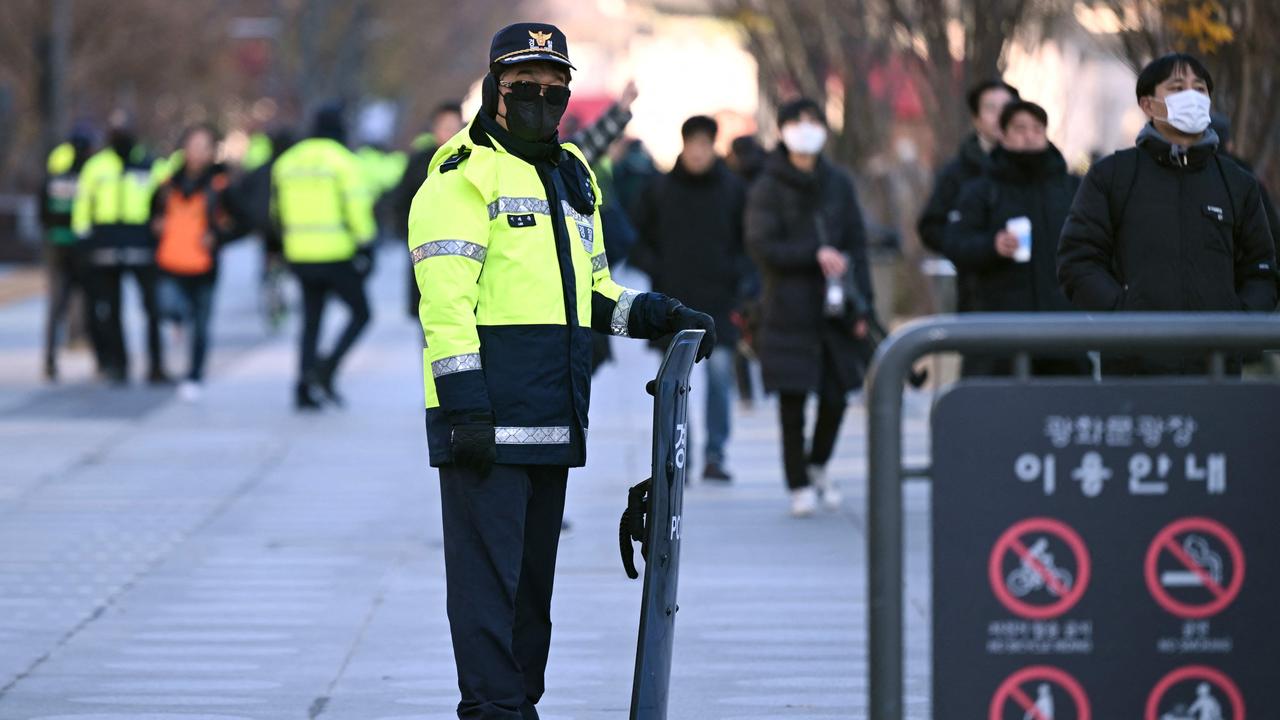
Meanwhile, the leader of Yoon’s own conservative party urged the president to explain the “tragic” declaration and called on the minister of defence to be “immediately dismissed” over the move.
“As the ruling party, we feel deeply sorry to the public,” People Power Party leader Han Dong-hoon said in a statement on Wednesday.
“The president must directly and thoroughly explain this tragic situation,” he added.
“The minister of defence, who recommended this martial law, should be immediately dismissed, and all those responsible must be held strictly accountable.”
Chaotic scenes erupt
Chaos earlier erupted on Wednesday morning following Yoon’s short-lived attempt at martial law,
Troops could be seen entering the parliament building in Seoul, with police stopping people from entering and helicopters circling overhead.
Protesters gathered at the gates of the National Assembly chanting “no to martial law” and “strike down the dictatorship’, the BBC reports.
Others chanted “arrest Yoon Suk Yeol”, AFP reports.
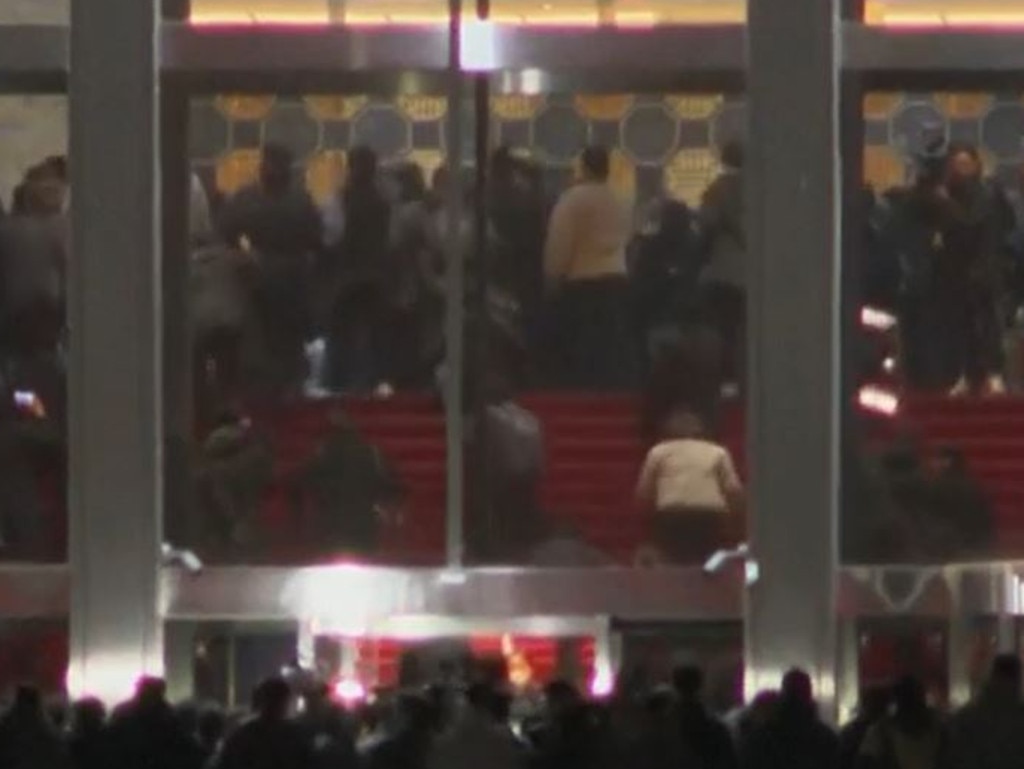
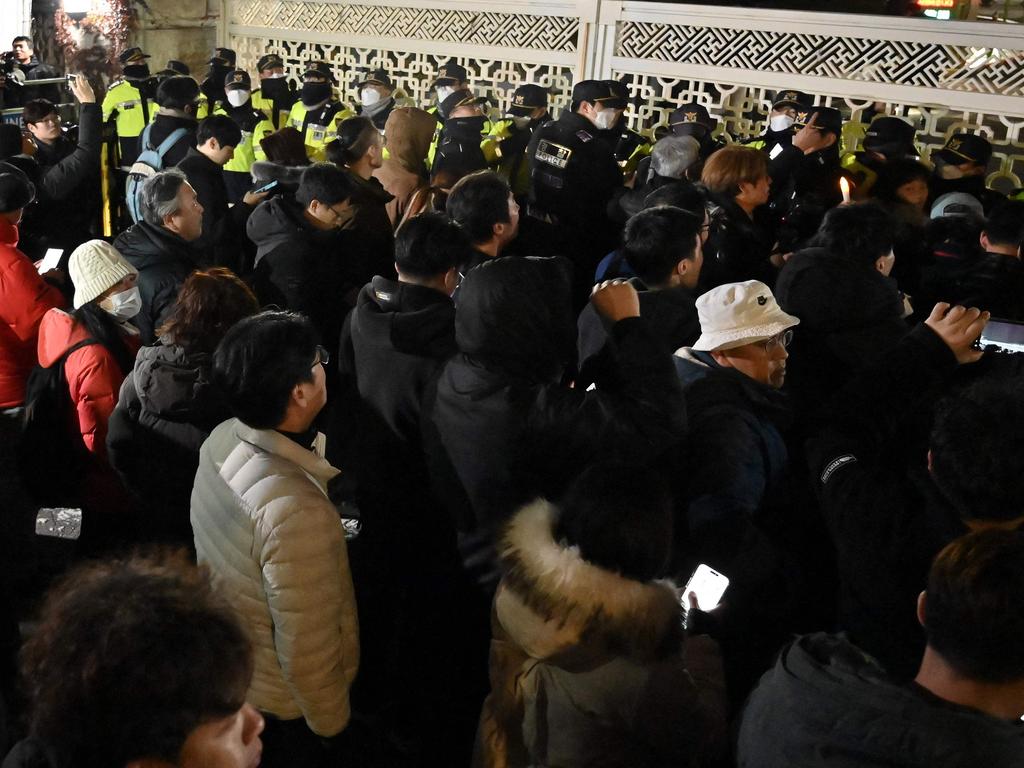
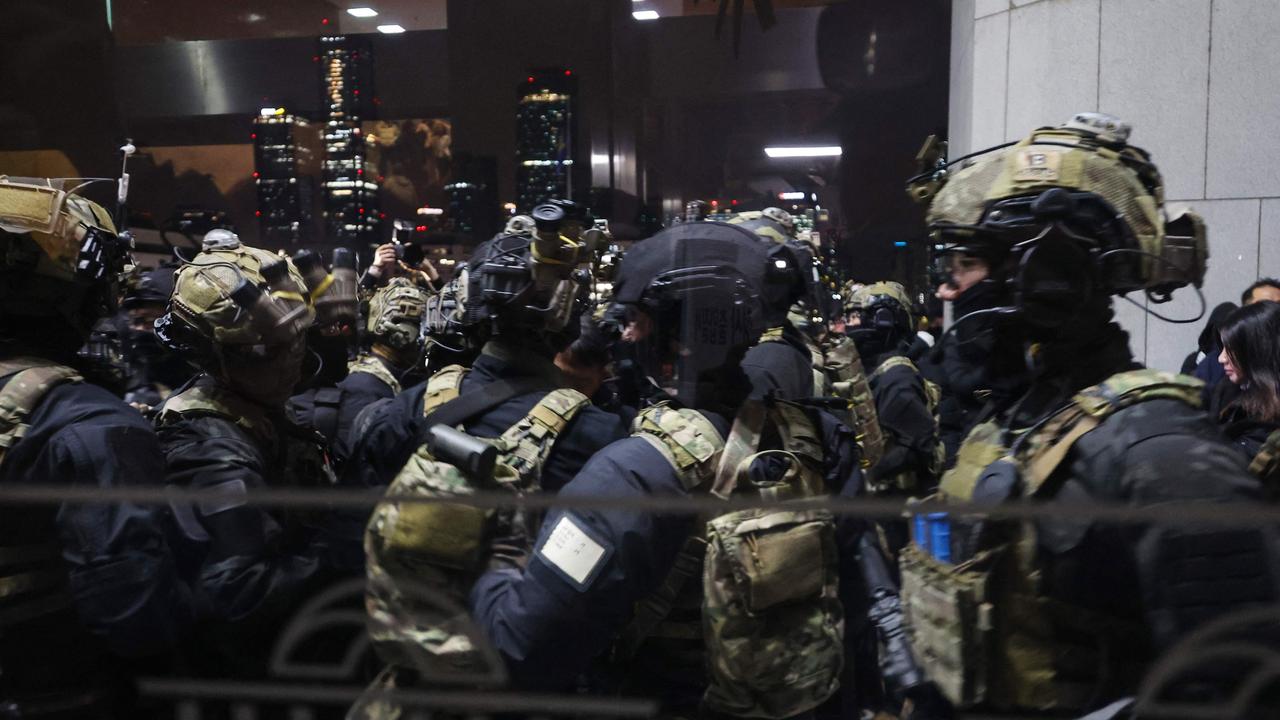
Inside, members of the main opposition Democratic Party were seen setting up barricades at of the building’s entrances.
Following Yoon’s announcement, South Korea’s main opposition, the Democratic Party, called on all its lawmakers to assemble at the National Assembly, the country’s legislative body.
The South Korean parliament voted to block martial law, with all 190 members present in favour.
Under the constitution, martial law must be lifted when a majority in parliament demands it.
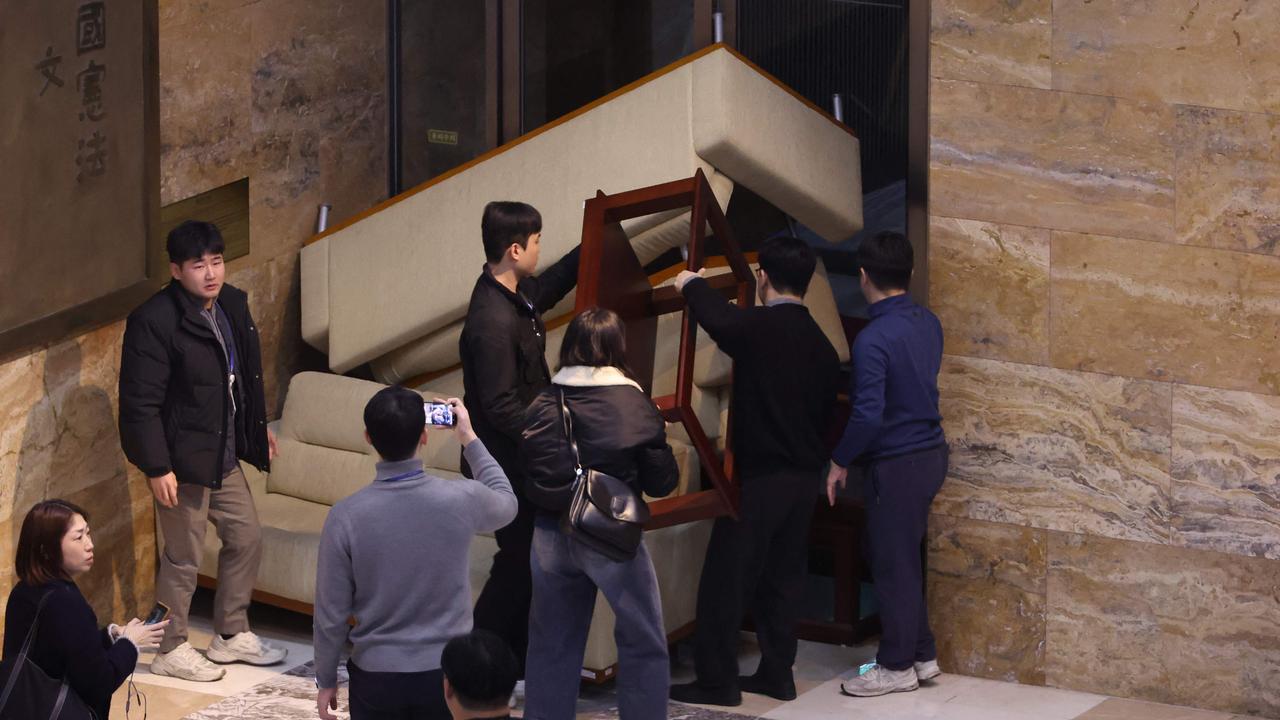
US “relieved” after expressing “grave concern”
The White House expressed its relief on Wednesday after South Korea’s president reversed his shock declaration.
“We are relieved President Yoon has reversed course on his concerning declaration of martial law,” a White House spokesperson said.
“Democracy is at the foundation of the U.S.-ROK alliance,” the spokesperson continued, using the abbreviation for Republic of Korea.
“We will continue to monitor the situation.”
Democratic South Korea is a major ally for the United States in Asia.
The US State Department earlier said Washington was watching the unfolding situation in South Korea with “grave concern”.
“We are continuing to watch with grave concern, and we will continue to follow developments on the ground very closely,” said Principal deputy spokesperson Vedant Patel.
Mr Patel confirmed the US was not notified in advance about President Yoon’s plan to implement martial law and the alliance between the two countries remains “iron-clad”.
When asked whether the president should respect the parliament’s vote and revoke marital law, he said: “We want this to be resolved peacefully and in accordance with the rule of law. “Certainly the legislature voting to pass something would be consistent with the law of that country.”
The White House said US President Joe Biden had been briefed on the latest developments.
The UK government also said it was “closely monitoring developments” and urged Britons to avoid political demonstrations in South Korea.
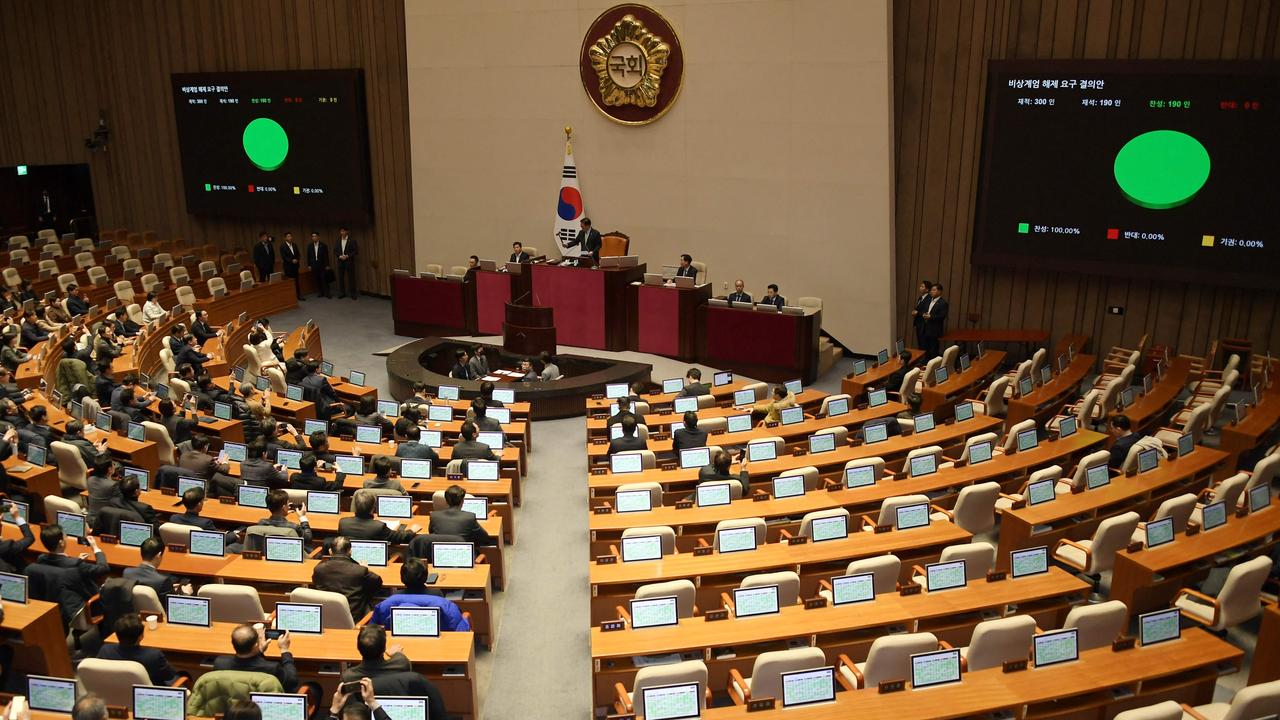
Why Yoon declared martial law
Yoon had given a range of reasons to justify martial law – South Korea’s first in more than 40 years.
“To safeguard a liberal South Korea from the threats posed by North Korea’s communist forces and to eliminate anti-state elements plundering people’s freedom and happiness, I hereby declare emergency martial law,” Yoon said in the live televised address.
Yoon did not give details of the North’s threats, but the South remains technically at war with nuclear-armed Pyongyang.
“Our National Assembly has become a haven for criminals, a den of legislative dictatorship that seeks to paralyse the judicial and administrative systems and overturn our liberal democratic order,” Yoon said.
Army chief General Park An-su took charge as martial law commander under the earlier order and immediately issued a decree banning “all political activities”.
The decree by Park also banned “actions that deny or seek to overthrow the liberal democratic system, including the spread of fake news, public opinion manipulation, and false propaganda”.
The president labelled the opposition, which holds a majority in the 300-member parliament, as “anti-state forces intent on overthrowing the regime”.
Yoon described the imposition of martial law as “inevitable to guarantee the continuity of a liberal South Korea,” adding that it would not impact the country’s foreign policy.
“I will restore the country to normalcy by getting rid of anti-state forces as soon as possible,” he said, without elaborating further.
He described the current situation as South Korea “on the verge of collapse, with the National Assembly acting as a monster intent on bringing down liberal democracy”.
Budget row
Yoon’s announcement also came as his party and the opposition bicker over the budget. The opposition has slashed approximately 4.1 trillion won (AU$4.4 billion) from Yoon’s proposed 677 trillion won budget plan, cutting the government’s reserve fund and activity budgets for Yoon’s office, the prosecution, police and the state audit agency.
Yoon, a former prosecutor, accused opposition lawmakers of cutting “all key budgets essential to the nation’s core functions, such as combating drug crimes and maintaining public security … turning the country into a drug haven and a state of public safety chaos.”
Meanwhile, Yoon’s approval rating dropped to 19 per cent in the latest Gallup poll last week, with many expressing dissatisfaction over his handling of the economy and controversies involving his wife, Kim Keon Hee
Tensions soar between South and North Korea
In recent years, border tensions have soared between South and North Korea who are technically still at war as a peace treaty was never signed after the 1950-1953 Korean War.
Pyongyang has amended its constitution to declare South Korea a “hostile state”.
Dictator Kim Jong-un has pulled out of treaties, demolished unification monuments, and blown up road and railway links connecting the two nations, sparking military tensions.
A Demilitarized Zone (DMZ) was created to separate the two countries.
It is one of the most heavily mined places on Earth – strewn with landmines to deter enemy troops.
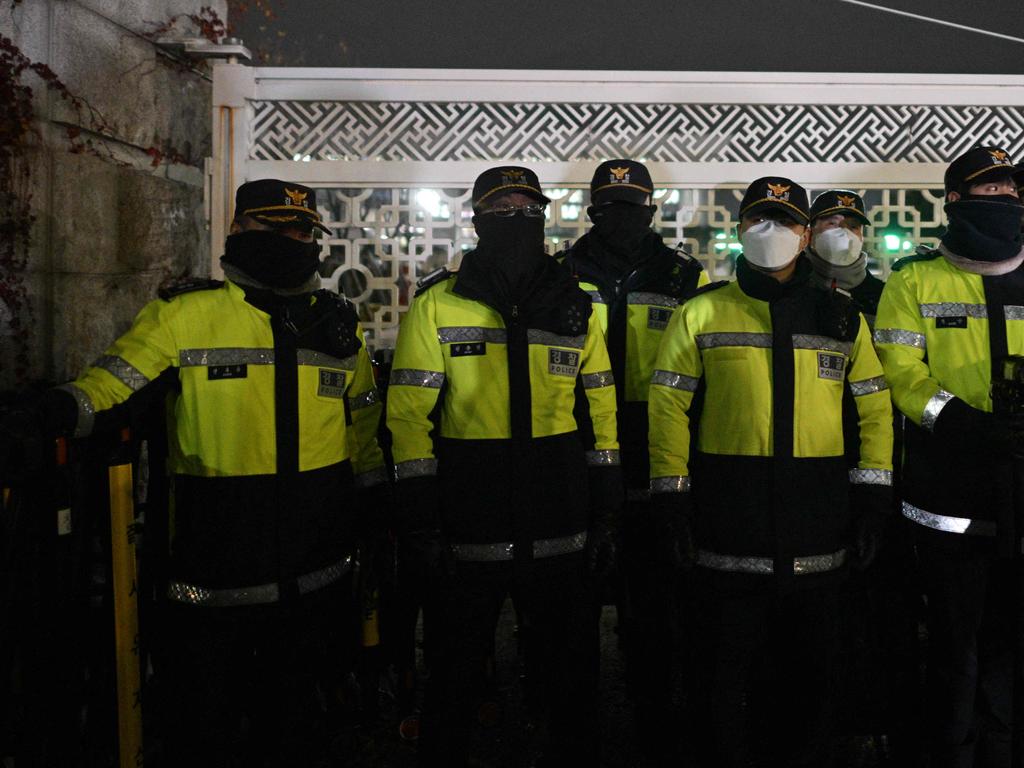
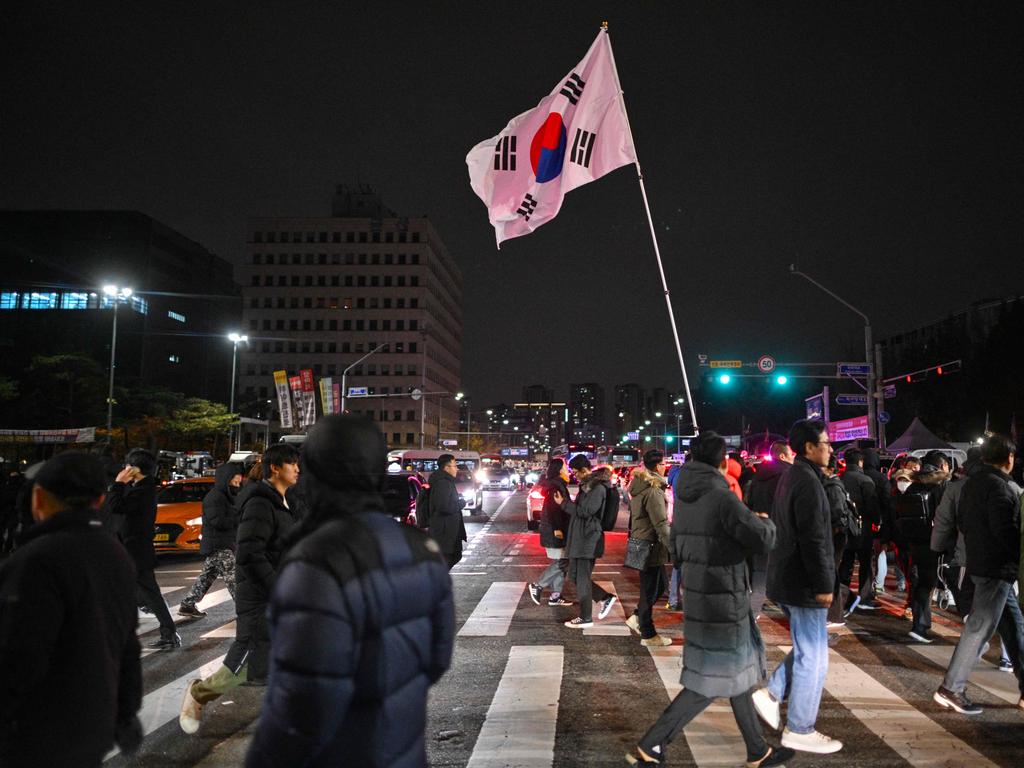
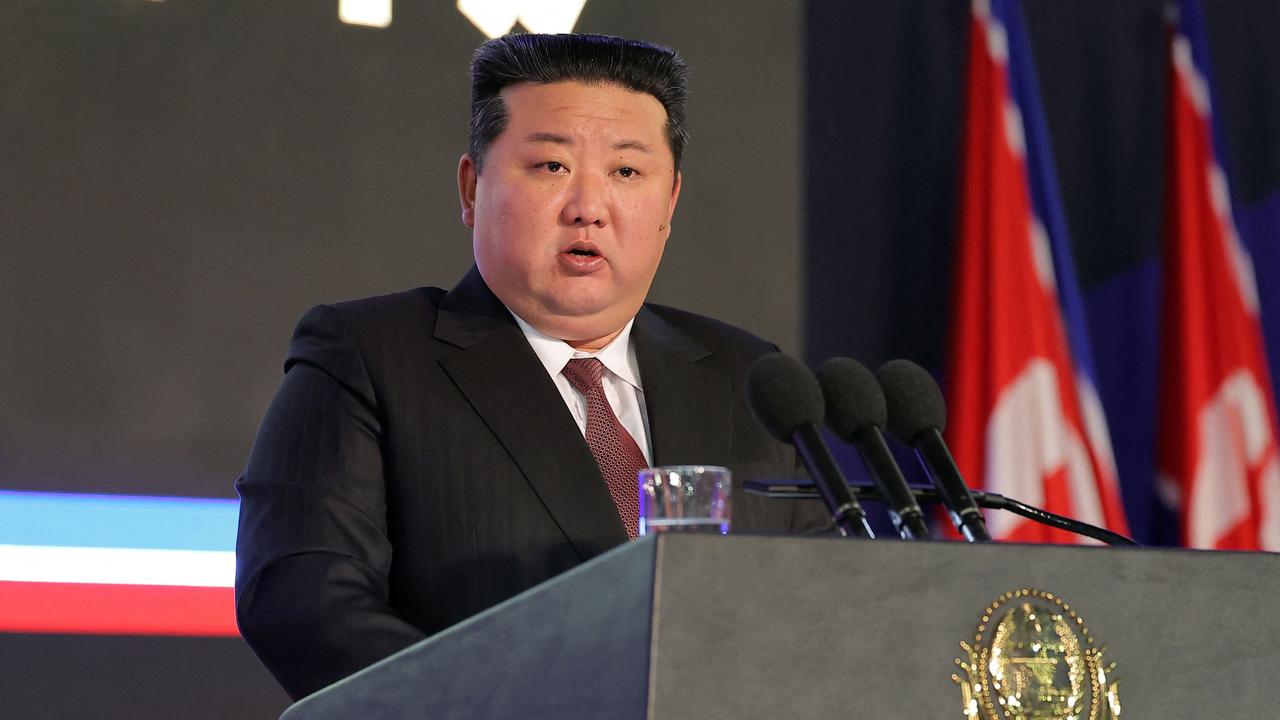
President Yoon Suk Yeol’s decision to impose martial law comes after North Korea branded him the “vicious main culprit” blaming him for the hostile situation between the two nations.
A picture was displayed at the centre of Pyongyang that showed Suk Yeol visiting a military unit.
The picture was captioned: “The venomous remarks of scoundrel Yoon Suk Yeol causing destruction.
“The vicious main culprit of the confrontation mentality against the Republic.”
The display also targeted South Korea’s alliance with the US, describing it as an “aggressive treaty”.
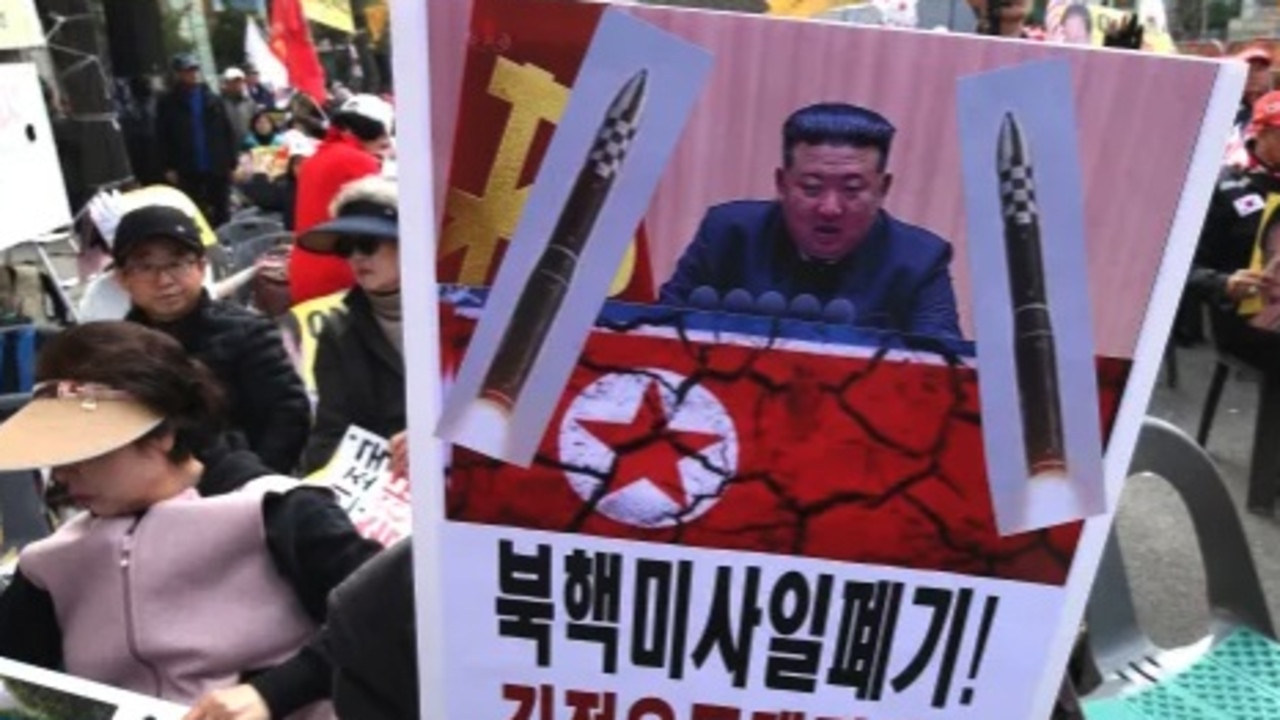
In recent months, tensions have also grown over balloons of trash floated from North Korea, which Pyongyang says are a response to balloons carrying anti-regime leaflets sent by activists in the South.
Earlier this year, South Korea fired warning shots at North Korean soldiers twice in one week after troops crossed the border.
Meanwhile, deranged dictator Kim has been laying more landmines, reinforcing roads and adding what looks like antitank barriers on the South’s doorstep.
Satellite images suggest the North is also building new defence lines right on the border – risking “escalation” and “bloodshed”, experts have warned.
And Kim has been intensifying weapons tests as the US, South Korea and Japan host a flurry of war games in the region.
In a brazen intimidation move, North Korea sent a wave of 260 filthy faeces-filled balloons to South Korea.
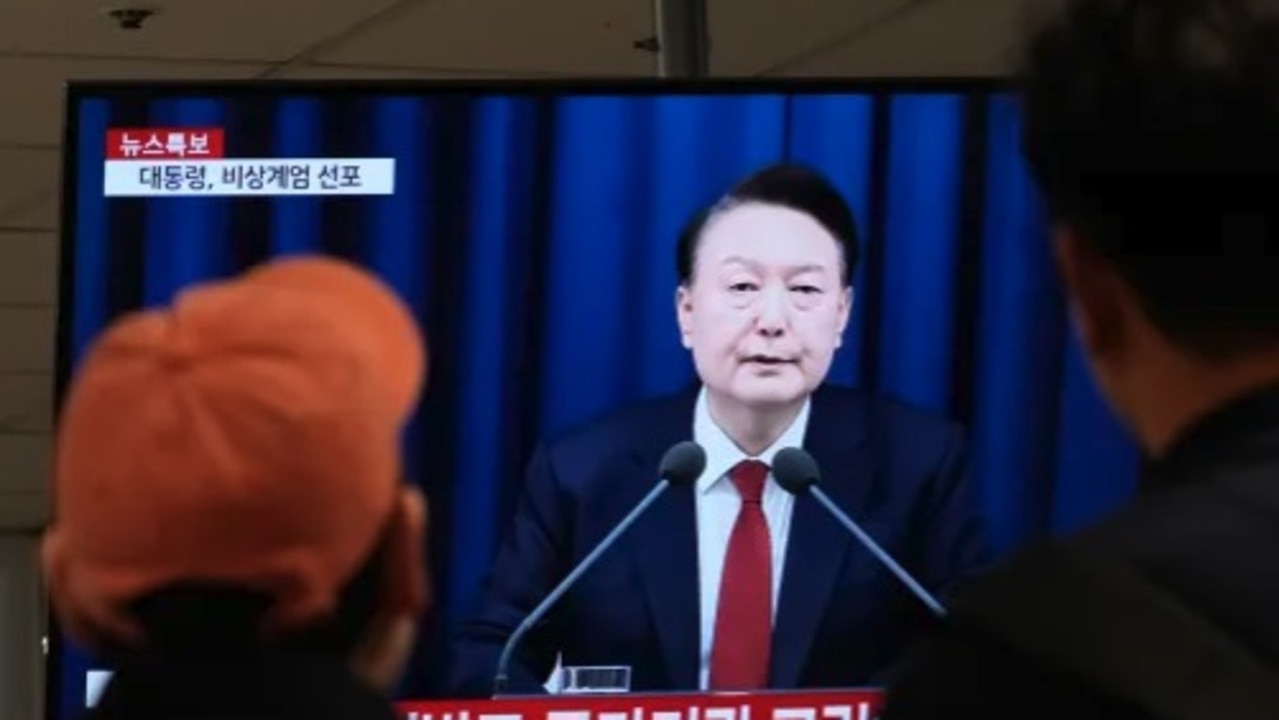
Speaking to The Sun, Michael Madden, director and founder of NK Leadership Watch, said a “serious escalation” on the Korean peninsula would be triggered by “several days of incidents near the border”.
These “incidents” – including shots being fired – would unfold “for a period of about five days to a week before a serious escalation in tensions”.
More Coverage
This could then spark a “strategic miscalculation which could incite a larger conflict”.
“There are a number of tripwires and forums before it would reach that point,” he added. Armed with an arsenal of nukes and chemical weapons, experts have warned a war with tyrant Kim Jong-un could be one of the bloodiest in history.
– With The Sun and AFP


